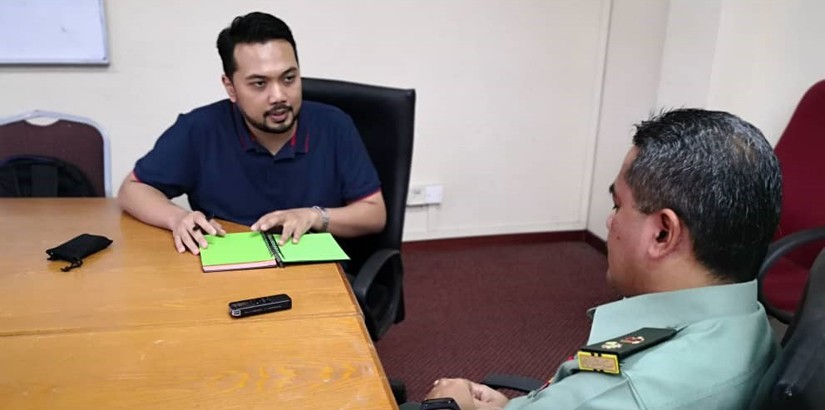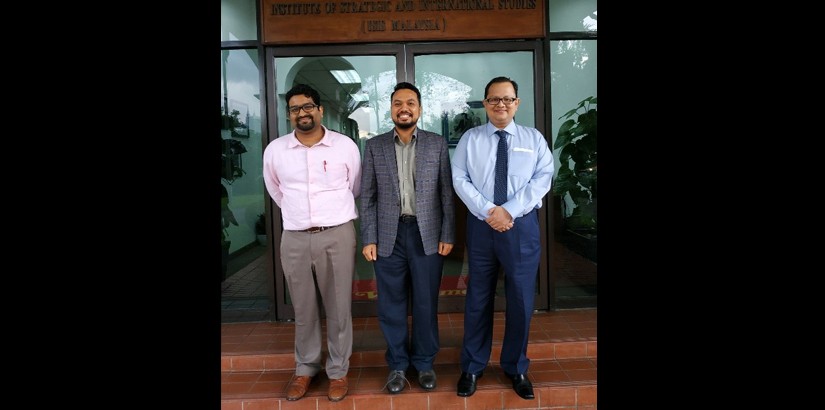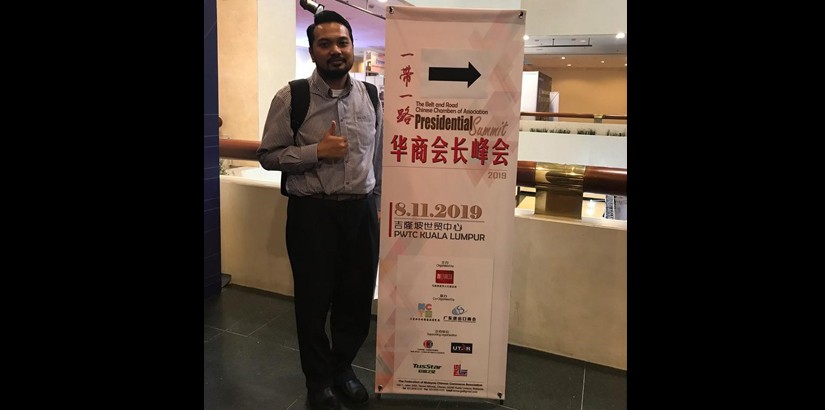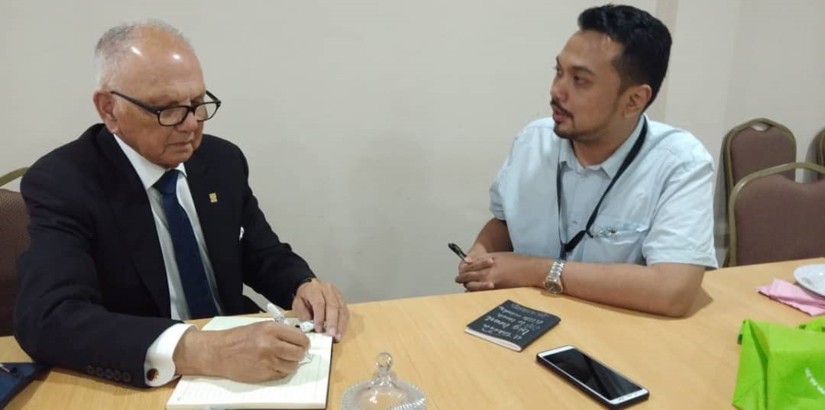2021
31 MarGetting Out of Your Comfort Zone
“Honoured” and “Delighted”. These are the two words that came from Mohd Ikhram bin Mohd Ridzuan, a lecturer and the Head of Praxis, Industry and Community Engagement (PICE) for the Faculty of Social Science and Liberal Arts (FOSSLA), UCSI University Kuala Lumpur campus on his recent achievement.
Ikhram was selected as a Project Member for the Hybrid OTEC – Development of Malaysia Model (inclusive of Economic Evaluation). Furthermore, Ikhram was also appointed to lead the policy group to plan and structure the national policy in preparing the blueprint for renewable energy.
“I am honoured and delighted for being chosen to be a part of this amazing project. This is a project under the Development of Advanced Hybrid Ocean Thermal Energy Conversion (OTEC) Technology for Low Carbon Society & Sustainable Energy System: The First Experimental OTEC Plant of Malaysia.
This project is actually out of my expertise, but I believe that this project can be a benchmark for me to achieve good and excellent results as a researcher,” he said.
According to Ikhram, this is a long term research grant scheme starting from July 2019 to June 2024 involving an international grant of RM6 million with the Japanese government as well as international organisations such as the Japan Science and Technology Agency (JST) and Japan International Cooperation Agency (JICA).
Adding to his achievement, Ikhram stated that his experience working at UCSI has shaped his identity from “zero to a hero”.
“Working in tertiary education has exposed me to how challenging it is in the research world. To solve a problem, there must in-depth research that needs to be done,” he said.
“I am grateful that I get to work in UCSI. Over the past six years, UCSI has shaped me from being nothing to something.
“I believe that young lecturers and researchers today should not be discouraged when it comes to improving themselves. There are tons of opportunities out there and we just need to spread our wings and explore those opportunities to strengthen our abilities,” he added.
Ikhram has been working with UCSI University since 2016. Throughout his career, Ikhram has been entrusted to conduct seminars and deliver talks on the current geopolitical issues at the national, ASEAN and international level.
Some of the research institutions that have invited him as a guest speaker were Institute Diplomacy and Foreign Relations-UKM, Institute of Strategic and International Studies (ISIS Malaysia), Institute of Malaysian and International Studies (IKMAS), Chinese Institute of International Studies, ISEAS-Yusof Ishak Institute (Singapore), and Chinese Institute of International Studies (China).
Ikhram is currently in the last stage of his PhD studies in Analytical and Strategic Studies at Universiti Kebangsaan Malaysia (UKM). He was also awarded a Master’s degree from the same varsity and a Bachelor’s degree in International Relations from Universiti Malaysia Sabah (UMS).
The basis of OTEC technology is that water near the surface is heated by sunlight while seawater, deep in the dark, is much colder. This technology is viable, primarily, in equatorial areas where the year-round temperature differential is at least 20°C (36°F).
OTEC plants work by using warm surface water to heat ammonia or some other fluids that boil at a low temperature, to produce gas used to drive the turbines needed to produce electricity. The gas is then cooled by cold water pumped up from the ocean depths and the resulting fluid is recycled to help generate power.
Oceans cover more than 70% of the Earth’s surface and capture a large part of the sun’s heat in the upper layers, making them the world’s largest solar collectors and energy storage system. Therefore, utilising just a small portion of this energy can cover global energy needs. The energy source of OTEC is free, available abundantly, and is continually being replenished as long as the sun shines and the natural ocean currents exist.
Various renowned parties estimate the amount of energy that can be practically harvested to be in the order of three to five terawatts (one terawatt is 112 watts) of baseload power generation, without affecting the temperature of the ocean or the world’s environment. That’s about twice the global electricity demand.
The oceans are thus a vast renewable resource, with the potential to contribute to the future energy mix, offering a sustainable electricity production method.
By-Products of OTEC include:
Clean and Safe Drinking Water
A small 1MW hybrid OTEC plant is capable of producing, approximately, 4500 m³ of water per day, an amount enough for a population of 20,000 people. OTEC-produced water compares favourably to those from standard desalination plants, in terms of quality and production costs.
Food
Nutrient-rich, cold, deep seawater from the OTEC plant can be discharged into large ponds, near shore or on land, where it can be used for multi-species mariculture, producing high yields.
A Coolant
The cold, deep seawater can be used to cool greenhouses, as seen in the Seawater Greenhouse project, and can be used for cold-bed agriculture. This water can also be used in air-conditioning systems and food refrigeration systems.












